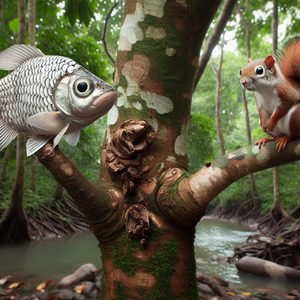The Science of Taste – Why Insect Protein Snacks Satisfy Our Cravings

At the core of our enjoyment of insect snacks is umami—the 'fifth taste' alongside sweet, sour, salty, and bitter. Insects, especially when roasted or fried, are naturally rich in umami compounds like glutamates and nucleotides. Studies show that roasted crickets and mealworms score high for umami perception, often surpassing plant-based protein alternatives. This savory depth mimics the satisfaction of traditional snacks like roasted nuts or beef jerky, making insect snacks appealing to both foodies and nutritionists.
Texture: The Crunch that Counts
Texture is a crucial element of snack enjoyment. The crunch of roasted crickets, for example, provides a multisensory experience that stimulates positive emotions and the release of dopamine. Classic snacks are celebrated for their texture, and insect snacks are no different. Manufacturers create brittle clusters, crispy bars, and chips that highlight insects' unique textures, offering a complete sensory experience.
The Thrill of Novelty: Eating with the Mind
Eating is also a psychological experience, and insect snacks tap into curiosity and the love of novelty. For many, eating insects is a culinary adventure. Studies show that adventurous eaters are more likely to enjoy and continue buying insect-based snacks. Marketers enhance this sense of adventure with creative packaging and limited-edition flavors, turning snacking into an exciting, shareable experience.
Cultural Context and Familiar Flavors
Successful insect snacks often blend the exotic with the familiar by using popular flavors like barbecue or chili lime. This approach eases psychological hesitation and enhances the savory notes of insect protein. Globally, such combinations are traditional, as seen in Thailand and Mexico. By merging cultural authenticity with familiar tastes, insect snacks appeal to a wide range of consumers.
Gourmet insect protein snacks are more than a novelty or eco-friendly trend. Sensory science and psychology reveal why they deliver on taste, texture, and excitement. As innovation continues, these snacks are poised to become even more popular, offering a satisfying experience that goes beyond sustainability—fulfilling cravings for flavor, crunch, and adventure.
Sensory Scientist (Food Innovation)
Nestlé, PepsiCo, Exo, Chapul
Responsibilities
Design and conduct sensory evaluations to analyze consumer responses to novel food products, including insect-based snacks.
Develop testing methodologies for attributes like taste, aroma, texture, and aftertaste; use statistical analysis to interpret results.
Collaborate with product development teams to optimize recipes based on sensory data.
Required Skills
Background in food science, statistics, and sensory analysis.
Experience with sensory software (e.g., Compusense).
Culinary R&D Chef (Alternative Proteins)
Aspire Food Group, Hargol FoodTech, restaurant groups venturing into alternative proteins
Responsibilities
Create and iterate recipes featuring insect proteins, focusing on maximizing flavor, texture, and consumer appeal.
Work closely with food scientists to ensure products meet nutritional and regulatory standards while maintaining gourmet quality.
Research global cuisines for inspiration and adapt traditional insect-based dishes for mainstream markets.
Required Skills
Professional culinary training.
Experience with experimental ingredients.
Understanding of food trends.
Food Marketing & Brand Strategist (Sustainable Foods)
Eat Grub, Small Giants, food conglomerates expanding into sustainable products
Responsibilities
Develop and execute marketing campaigns that educate consumers and drive adoption of insect-based snacks.
Craft brand messaging that balances novelty, sustainability, and familiarity to reduce consumer hesitation.
Analyze market data and consumer trends to inform product positioning and packaging decisions.
Required Skills
Background in marketing or communications.
Experience with food/CPG brands.
Strong storytelling ability.
Regulatory Affairs Specialist (Novel Foods)
ingredient suppliers, global food manufacturers, consultancies specializing in novel foods
Responsibilities
Guide insect protein products through the complex regulatory landscape, ensuring compliance with local and international food safety standards (e.g., FDA, EFSA).
Prepare and submit documentation for novel food approvals, labeling, and claims related to insect-derived ingredients.
Liaise with R&D, legal, and government agencies to expedite market entry and address any compliance concerns.
Required Skills
Expertise in food law, regulatory submissions, and risk assessment.
Food Texture Technologist
specialty snack companies, contract research organizations, Symrise, Ingredion
Responsibilities
Research and optimize the textural properties of insect-based snacks, aiming for appealing crunch, mouthfeel, and stability.
Employ techniques like extrusion, roasting, or blending to enhance sensory experience while maintaining nutritional integrity.
Utilize texture analysis equipment and work cross-functionally with sensory scientists and culinary teams.
Required Skills
Degree in food science or food engineering.
Hands-on experience with texture profiling equipment.


